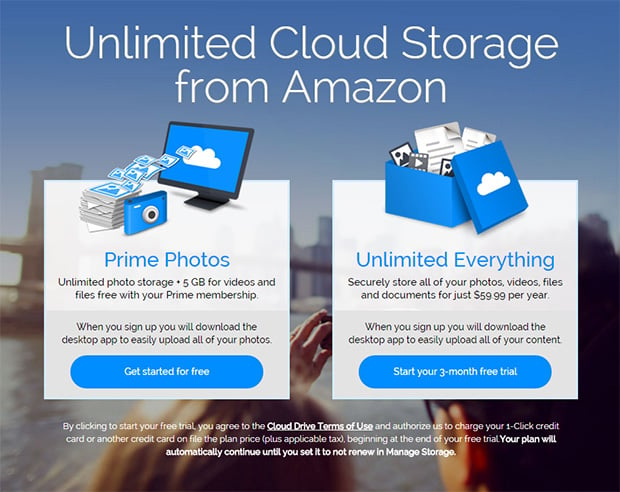Amazon Axes Unlimited Cloud Storage Option For Customers
If you are currently paying $60 a year for the unlimited tier of Amazon Drive, the days of enjoying an overabundance of storage space are numbered. Amazon announced that it is killing off that tier effective today, June 8th.
As of today, you can no longer sign up for the unlimited tier and that same $60 a year price will now only offer 1TB of storage space. Amazon says that it will now allow customers to purchase up to an additional 30TB of storage at $60 per TB. For those that were using well over 1TB of storage when their unlimited plans, this pricing change will likely be a bitter pill to swallow.

If you currently have an unlimited plan, you will be able to keep that store tier until your plan is up for renewal. At that time, you will be renewed at the same $60 price, but with only 1TB of storage. Once your unlimited service eventually expires, your files won’t be immediately culled to meet the 1TB threshold — instead, you will be given 180 days to either download or delete your “excess” data. After that point, Amazon will take it upon itself to delete your data.
We should mention that despite the removal of the unlimited Amazon Drive storage tier, Amazon Prime customers still have access to unlimited photo storage. In addition, all customers that sign up for Amazon Drive will receive 5GB of storage for free.
Amazon’s decision to kill off the unlimited store tier is disappointing, but mirrors a similar move by Microsoft in late 2015. Microsoft used to offer unlimited OneDrive cloud storage for Office 365 subscribers, but dropped it down to 1TB in November 2015. At the time, Microsoft blamed the service reduction on data hogs who were abusing the service.
“A small number of users backed up numerous PCs and stored entire movie collections and DVR recordings,” said the OneDrive team in November 2015. “In some instances, this exceeded 75 TB per user or 14,000 times the average. Instead of focusing on extreme backup scenarios, we want to remain focused on delivering high-value productivity and collaboration experiences that benefit the majority of OneDrive users.”

